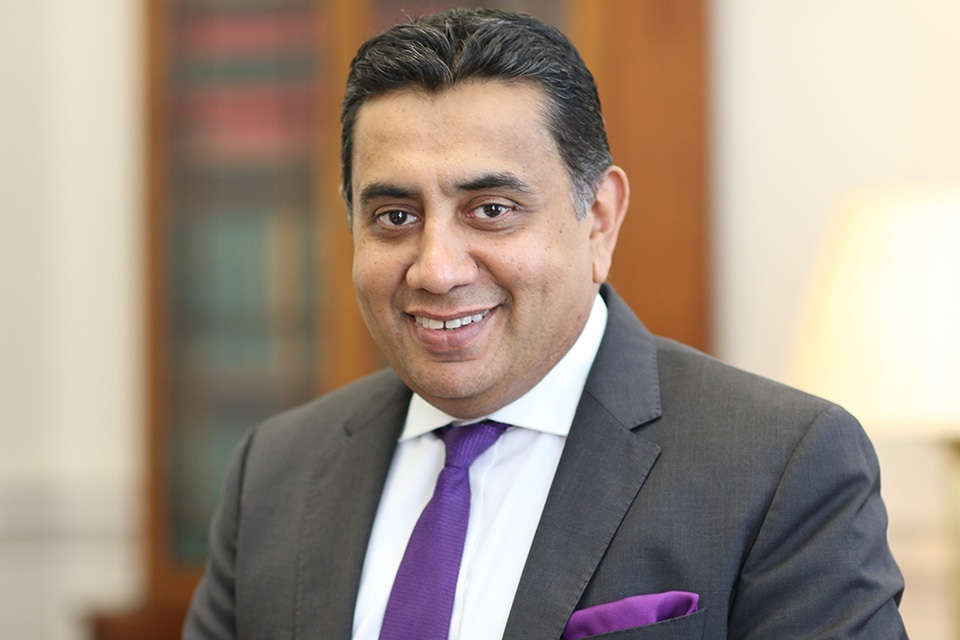45th Universal Periodic Review of human rights: UK closing statement
Lord (Tariq) Ahmad of Wimbledon gave a written statement at the conclusion of the February 2024 Universal Periodic Review.

The Universal Periodic Review (UPR) is a unique process, involving a peer review of the human rights records of all 193 UN member states. It is a tool of the Human Rights Council, aimed at sharing best practice. The UK strongly supports the UPR, having spoken at every session and about every country since the process began. This session reviewed 13 states: Belize, Central African Republic (CAR), Chad, China, the Republic of Congo, Jordan, Malaysia, Malta, Mauritius, Mexico, Monaco, Saudi Arabia, and Senegal.
Women’s and girls’ rights
In the fourth cycle of the UPR, women’s and girls’ rights is a priority theme that I am firmly committed to supporting. Mauritius, for example, was recommended to fully implement and report regularly on progress of the National Gender Policy and the National Strategy and Action Plan on gender-based violence. CAR was recommended to criminalise marital rape, female genital mutilation, and early forced marriage and to hold any perpetrators of these crimes to account. Turning to Malaysia, it was recommended that they continue to protect and promote women’s rights through a Gender Equality Bill, and enshrine a clear and workable definition of ‘discrimination’ into law.
China
People across China face widespread restrictions and violations of their human rights and fundamental freedoms including severe constraints on freedom of religion or belief and cultural expression. This is why, alongside the UK’s partners, I urge China to cease the persecution and arbitrary detention of Uyghurs and Tibetans, and to allow them to live without fear of surveillance, torture, forced labour or sexual violence. I also call on China to repeal the National Security Law it imposed in Hong Kong, which has stifled opposition and criminalised dissent, to cease the restriction of civil society throughout the country, and guarantee an impartial judiciary.
Mexico
I welcome Mexico’s multilateral leadership, including on gender and LGBT+ rights, as well as the recent bilateral engagement within the inaugural UK-Mexico Human Rights and multilateral dialogue. I welcome the ongoing implementation of the National Anticorruption System. However, I remain concerned about high levels of impunity and corruption, as well as ongoing high rates of violence against women and girls. I urge the Mexican government to demilitarise the national guard, including its transferring of control to a civilian authority. Freedom of expression is a right to be enjoyed by all, I therefore call on Mexico to strengthen the capacity and resources of public prosecutors (including those of the special prosecutor for the Attention of Crimes Committed against Freedom of speech), to investigate crimes against journalists and human rights defenders.
Saudi Arabia
Turning to Saudi Arabia, I welcome the progress made on the rights of, and opportunities for women since their last UPR in 2018. I call on Saudi Arabia to amend their cyber crime and anti-terrorism legislation, defining terrorism in line with international human rights norms, and ensure that interpretation and application of the definition in counter-terrorism operations are consistent with human rights, particularly with regard to freedom of expression. Further, Saudi Arabia should restrict the use of the Specialised Criminal Court to cases that are appropriately defined as terrorism, and should permit journalists and diplomats to routinely monitor these trials.
Malta
I welcome Malta’s strong record on human rights, particularly LGBT+ rights. I also note the continued efforts made by the Maltese government to deliver reforms regarding media freedom and the rule of law, particularly in relation to Malta’s efforts to deliver against the recommendations of the public inquiry into the murder of journalist Daphne Caruana Galiza. I call on the Maltese government to review progress against the inquiry’s recommendations, and to make clear what the next steps will be. Additionally, I recommend Malta to continue to drive progress on issues relating to women’s rights, as well as use their seat on the United Nations Security Council (UNSC) to advocate for women, peace, and security.
Conclusion
I encourage all countries reviewed in this session to thoroughly consider and, where possible, accept the UK’s recommendations as well as taking the necessary steps to implement these. I look forward to the formal adoption at the 56th session of the Human Rights Council in June.